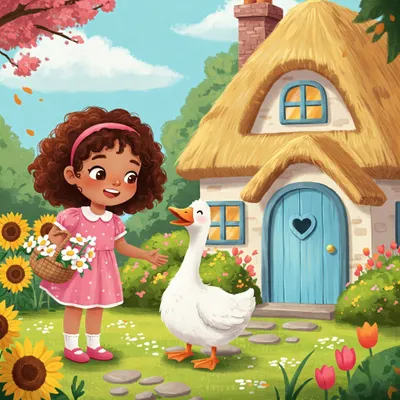Go Tell Aunt Rhody

Lyrics
Go tell Aunt Rhody,
Go tell Aunt Rhody,
The old grey goose is dead.
The one she's been saving,
The one she's been saving,
The one she's been saving,
To make a feather bed.
She died in the mill pond,
She died in the mill pond,
She died in the mill pond,
Standing on her head.
History and Meaning
"Go Tell Aunt Rhody" is generally recognised as an American folk staple, but its melody whispers of European origins, potentially tracing back to a tune in the French philosopher Jean-Jacques Rousseau's 1752 opera, Le Devin du Village (The Village Soothsayer). Imagine that journey – a melody possibly crossing the Atlantic, transforming into this simple, poignant narrative about rural life. The stark contrast between the often gentle, lilting way it's sung and the directness of its message – "The old grey goose is dead" – gives it a unique, somewhat melancholic character from the outset.
The heart of the rhyme lies not just in the goose's death, but in its context. This wasn't merely a goose, but "the one she's been saving," explicitly linking the bird to Aunt Rhody's plans, likely "to make a feather bed." This detail grounds the rhyme firmly in the practicalities and sometimes harsh realities of farm life, where animals were resources as well as perhaps companions. The loss is tangible; it disrupts plans and represents a small tragedy within the household economy. For children encountering the rhyme, it offers a very simple, digestible story about death, consequence, and the value placed on things often taken for granted.
Its simple, stepwise melody has made it a favourite for beginner musicians, famously included in the Suzuki method for violin students, introducing them early to expressing emotion through music. Perhaps its lasting appeal, passed down through generations, lies in this very honesty. It doesn't shy away from a touch of sadness, reflecting a small but real aspect of life, and doing so in a way that is simple, memorable, and ultimately quite touching to share.